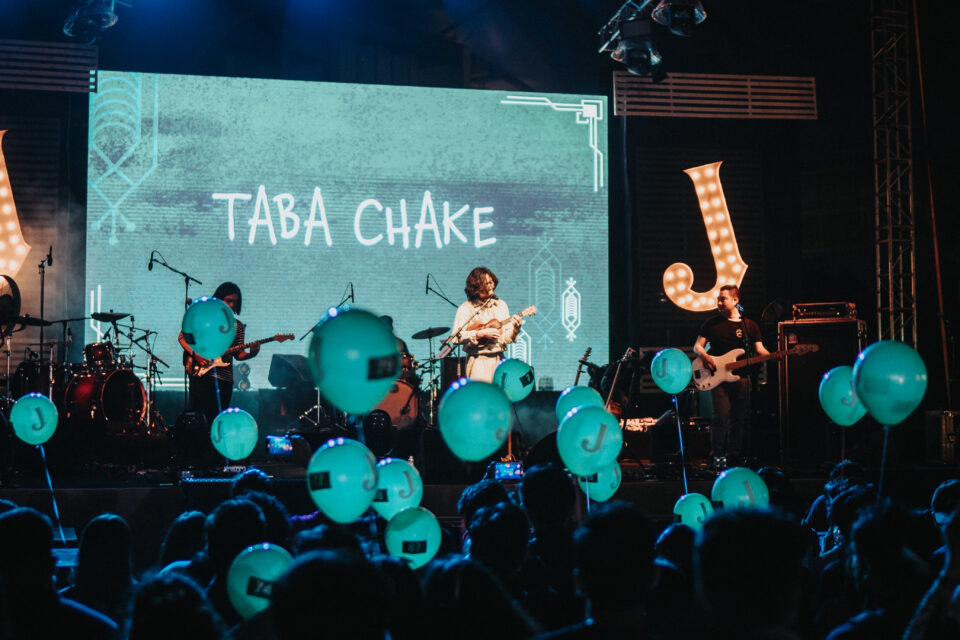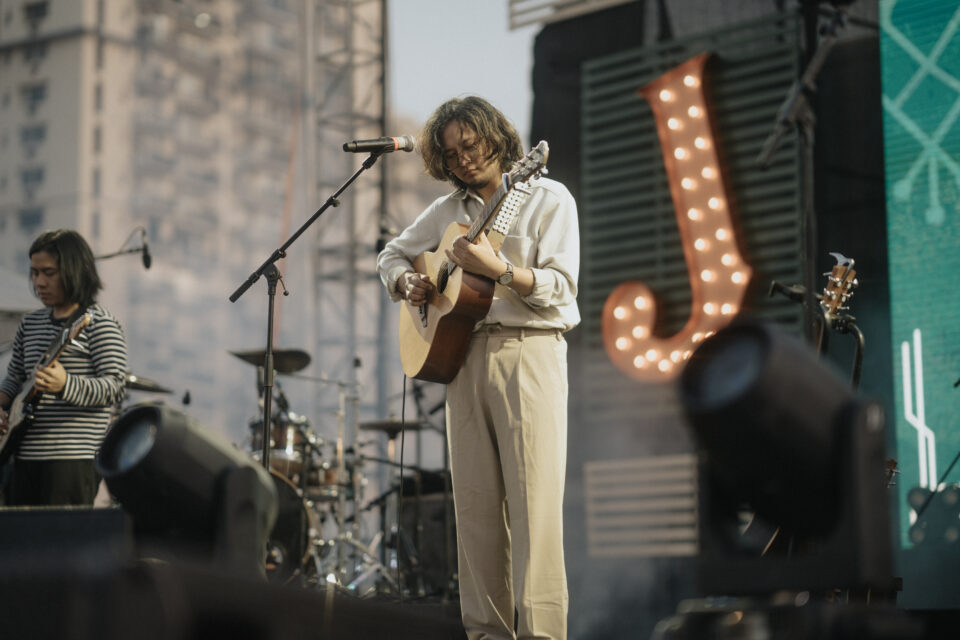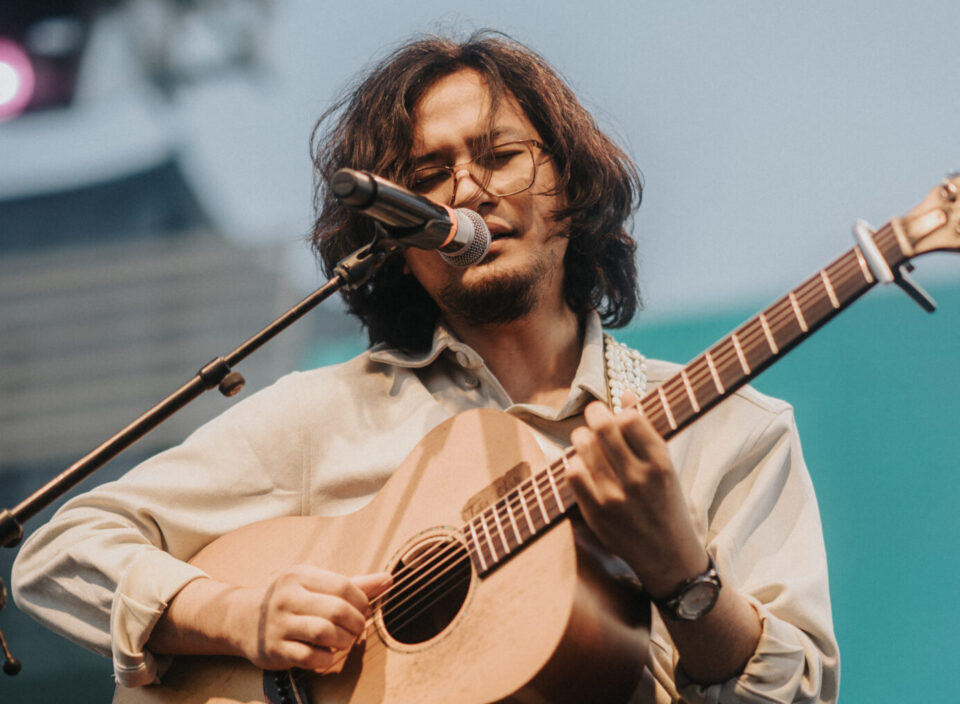
Taba Chake
The Arunachal artist has a soft spot for old-fashioned love stories
If you’re about to watch Arunachal singer-songwriter Taba Chake’s new video “Kahani,” it’s best to keep a tissue at hand. Based on a concept written by Chake and video director Bengia Morto, a story of an older couple looking back at their lives together strikes a chord when it comes to telling a love story like few others. It helps that Chake’s lush indie-rock way with melodies and heartfelt Hindi lyrics are driving the visuals too.
Chake will always be a storyteller, sometimes introspective – like on his English song “Halfway” – and other times, a total romantic, like on hit songs “Udd Chala,” “Aao Chalein” and “Shaayad.” Then, there’s the nature-inspired tunes, ones that go all the way back to his debut EP Bond with Nature in 2018. The artist speaks with us about where that romanticism and sense of yearning for another era comes from, the response for “Kahani” and what’s coming up next.
Rolling Stone India: There’s something to be said about how you’re drawn to old-fashioned love stories with “Kahani” as well as “Udd Chala,” especially with their music videos. What draws you to that kind of storytelling?
Taba Chake: I really miss the analog world and the analog era. When I meet people nowadays, I’m not able to understand them, because of social media and how people interact there. I come from a different world, to be honest. Of course, Delhi or Bombay is not my birthplace. I come from Arunachal, where things are still little analog even today. That’s in terms of everything – nature or hospitality or whatever. When I go to big cities, I miss the older days of how we used to meet and greet people.
Some may feel I’m a little old-school that way. I don’t know if it’s going in a good way or bad way. I have a lot of cassettes and stuff. The older I grow, I miss the olden times. The emotions and connection is something else back then.

Does that also come from your roots as a fingerstyle guitarist and just someone who wrote and played music with strong basics in mind?
In 2015 or 2016, before releasing Bond With Nature, I gave up music. I’d given music before also, for two years, because I didn’t want to record or do anything. I used to go to performances and find that some performers didn’t even play any instruments. I felt like, humara zaroorat hi nahi hai (we’re not needed). I thought no one listens to acoustic music – that’s why you still may not hear me play much acoustic even now. I’m not doing too much of that [imitates percussive guitar taps], because I felt all that was more action than sound. I felt like I was losing my focus on songwriting back then.
I think your music is now preserving those old-fashioned stories of love, like on “Kahani.” A lot of people in the comments wrote about how they were crying when they were watching the video and hearing the song.
When I was uploading the video, I was thinking to myself if we’d made something too cheesy or showing too much. But I did get confident about this video when I showed it to my dad and his driver. My dad’s driver, he literally cried. My dad also got emotional while watching the video. My uncle’s daughter also broke down. I’d rather show it to people who are not musicians for that initial feedback. That’s when I thought, ‘Yeh sahi video hai.’ (This is a great video). I made this concept with my cousin brother and it was for a love song, which is the easiest thing to do, you know?
Love is such a thing that’s everywhere. It comes from you and you don’t have to dig too deep or overexplain anything. ‘Walk With Me’ was written in 10 minutes. ‘Shaayad’ took four to five months. ‘Meri Dastaan’ was written in 2012 and it was recorded in 2018 and released in 2019. If you tell me to write a love song even now, I can finish it in two minutes. I’m not saying it’s easy, but when you think of love, there’s so much to give.

What do you think the North East and Arunachal Pradesh music ecosystem needs right now to keep it developing and nurturing new talent?
My answer would maybe a little ulta (roundabout) here, at least for you to hear. I actually think the government and people are giving more than what is needed today. We’re getting more than what we’re meant to. There are so many festivals in Arunachal and the entire North East that I can’t count. It’s losing focus and it’s changing very fast. Artists are doing shows everywhere, yes but when you do a lot of shows, you decrease the market.
Leave the market, the quality of the festivals seem to go down – there’s no learning and only people quickly setting up, giving half an hour soundcheck to bands and then wrapping up.
So we’re not ready for this. My friend and drummer Teji [Toko] – he’s my best friend – he has one of the best studios in the entire North East but it’s not functioning much. We’re the only artists recording and performing there. No one is willing to pay what the studio is charging, which is based on the best gear it has.
The government is definitely helping everyone by giving funds, but when there are so many festivals, the quality goes down.
What excites you about the future of music and what’s one thing that worries you about it?
I think social media has made people who listen to music become more tuned into the melody rather than lyrics. Melodies are nice, of course but back in the day, there was more lyrical storytelling. It’s there in rap, of course, but I still think it’s gotten bad in both rap and pop. I read lyrics for all the songs I hear, because I’m a songwriter and I love to know about other artists’ lyrics and their process. But it’s not there so much any longer.
But also, I’m pretty sure and I’m confident that in the future or maybe 10 years down the line, this thing will come back and artists who play real instruments and those who write or talk about the real world will come back.




